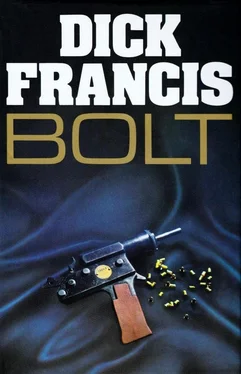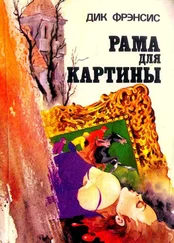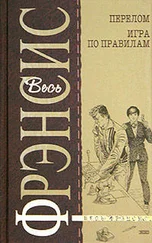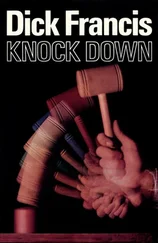For
Danielle and Holly
both born since
Break In
Bitter February, within and without. Mood to match the weather; raw and overcast, near to freezing. I walked from the weighing room to the parade ring at Newbury races trying not to search for the face that wouldn’t be there, the intimately known face of Danielle de Brescou, to whom I was formally engaged, diamond ring and all.
Winning the lady, back in November, had been unexpected, an awakening, deeply exciting... happy. Keeping her, in the frosts before spring, was proving the merry devil. My much loved dark haired young woman seemed frighteningly to be switching her gaze from a steeplechase jockey (myself) to an older richer sophisticate of superior lineage (he was a prince) who hadn’t even the decency to be bad looking.
Unmoved as I might try to appear on the surface, I was finding the frustration erupting instead in the races themselves, sending me hurtling over the fences without prudence, recklessly embracing peril like a drug to blot out rejection. It might not be sensible to do a risky job with a mind two hundred miles from one’s fingertips, but tranquillisers could come in many forms.
Princess Casilia, unaccompanied by Danielle, her husband’s niece, was waiting as usual in the parade ring, watching her runner, Cascade, walk round. I went across to her, shook the offered hand, made the small bow, acknowledging her rank.
‘A cold day,’ she said in greeting, the consonants faintly thick, vowels pure and clear, the accent only distantly reminiscent of her European homeland.
‘Yes. Cold,’ I said.
Danielle hadn’t come. Of course she hadn’t. Stupid of me to hope. She’d said cheerfully on the telephone that she wouldn’t be coming to stay this weekend, she would be going to a fabulous Florentine gathering in a hotel in the Lake District with the prince and some of his friends, where they would listen to lectures on the Italian Renaissance given by the Keeper of the Italian paintings in the Louvre, and various other things of that sort. It was such a great and unique opportunity, she was sure I’d understand.
It would be the third weekend in a row she’d been sure I would understand.
The princess looked distinguished as always, middle-aged, slender, intensely feminine, warm inside a supple sable coat swinging from narrow shoulders. Normally bareheaded, dark smooth hair piled high, she wore on that day a tall Russian-type fur hat with a huge up-turning fur brim, and I thought fleetingly that few could have carried it with more style. I had ridden her string of twenty or so horses for more than ten years and I tended to know her racegoing clothes well. The hat was new.
She noted the direction of my glance and the admiration that went with it, but said merely, ‘Too cold for Cascade, do you think?’
‘He won’t mind it,’ I said. ‘He’ll loosen up going down to the start.’
She wouldn’t mention Danielle’s absence, if I didn’t. Always reticent, sheltering her thoughts behind long eyelashes, the princess clung to civilised manners as if to a shield against the world’s worst onslaughts, and I’d been in her company enough not to undervalue her chosen social façades. She could calm tempests with politeness, defuse lightning with steadfast chitchat and disarm the most pugnacious adversaries by expecting them to behave well. I knew she would prefer me to keep my woes to myself, and would feel awkward if I didn’t.
She did, on the other hand, understand my present predicament perfectly well. Not only was Danielle her husband’s niece, but Litsi, the prince currently diverting Danielle to a fifteenth-century junket, was her own nephew.
Litsi, her nephew, and Danielle, her husband’s niece, were both currently guests under her Eaton Square roof, meeting from breakfast to dinner... and from dinner to breakfast, for all I really knew.
‘What are our chances?’ the princess asked neutrally.
‘Pretty good,’ I said.
She nodded in agreement, full of pleasant hope, the prospect of winning real enough.
Cascade, despite an absence of brains, was a prolific winner of two-mile ’chases who had shown his heels in the past to every opponent in that day’s field. Given luck he would do it again; but nothing’s certain, ever, in racing... or in life.
Prince Litsi, whose whole name was about a yard long and to my mind unpronounceable, was cosmopolitan, cultured, impressive and friendly. He spoke perfect idiomatic English with none of his aunt’s thickened consonants, which was hardly surprising as he’d been born after his royal grandparents had been chased off their throne, and had spent much of his childhood in England.
He lived now in France, but I’d met him a few times over the years when he’d visited his aunt and escorted her to the races, and I’d liked him in a vague way, never knowing him well. When I’d heard he was coming again for a visit, I hadn’t given a thought to the impact he might make on a bright American female who worked for a television news agency and thirsted for Leonardo da Vinci.
‘Kit,’ the princess said.
I retrieved my attention from the Lake District and focused on the calmness in her face.
‘Well,’ I said, ‘some races are easier than others.’
‘Do your best.’
‘Yes.’
Our pre-race meetings over the years had developed into short comfortable interludes in which little was said but much understood. Most owners went into parade rings accompanied by their trainers, but Wykeham Harlow, trainer of the princess’s horses, had altogether stopped going to the races. Wykeham, growing old, couldn’t stand the incessant winter journeys. Wykeham, shaky in the memory and jerky in the knees, nevertheless still generated the empathy with horses that had put him straight into the top rank from the beginning. He continued to send out streams of winners from his eighty-strong stable, and I, most thankfully, rode them.
The princess went indomitably to the races in all weathers, delighting in the prowess of her surrogate children, planning their futures, recalling their pasts, filling her days with an unflagging interest. Over many years, she and I had arrived at a relationship that was both formal and deep, sharing intensities of success and moments of grief, understanding each other in easy accord at race meetings, parting to unconnected lives at the gate.
Unconnected, that is to say, until the previous November when Danielle had arrived from America to take up her London posting and ended in my bed. Since then, although the princess had undoubtedly accepted me as a future member of her family and had invited me often to her house, her manner to me, as mine to her, had remained virtually unchanged, especially on racecourses. The pattern had been too long set, and felt right, it seemed, to us both.
‘Good luck,’ she said lightly, when the time came for mounting, and Cascade and I went down to the start with him presumably warming up from the canter but as usual sending no telepathic messages about his feelings. With some horses, a two-way mental traffic could be almost as explicit as speech, but dark, thin, nippy Cascade was habitually and unhelpfully silent.
The race turned out to be much harder than expected, as one of the other runners seemed to have found an extra gear since I’d beaten him last. He jumped stride for stride with Cascade down the far side and clung like glue round the bend into the straight. Shaping up to the last four fences and the run-in he was still close by Cascade’s side, his jockey keeping him there aggressively although there was the whole wide track to accommodate him. It was a demoralising tactic which that jockey often used against horses he thought frightenable, but I was in no mood to be overcrowded by him or by anybody, and I was conscious, as too often recently, of ruthlessness and rage inside and of repressed desperation bursting out.
Читать дальше




